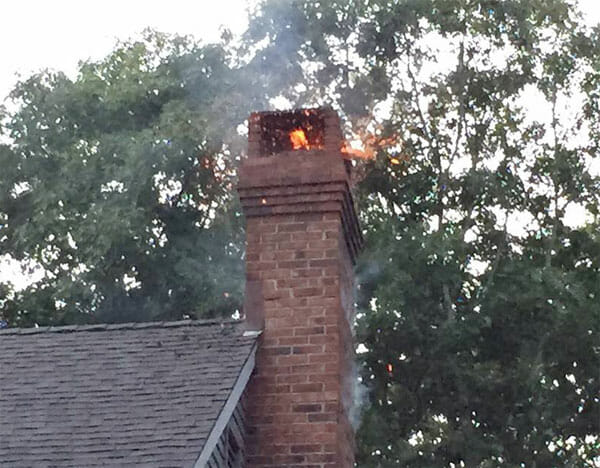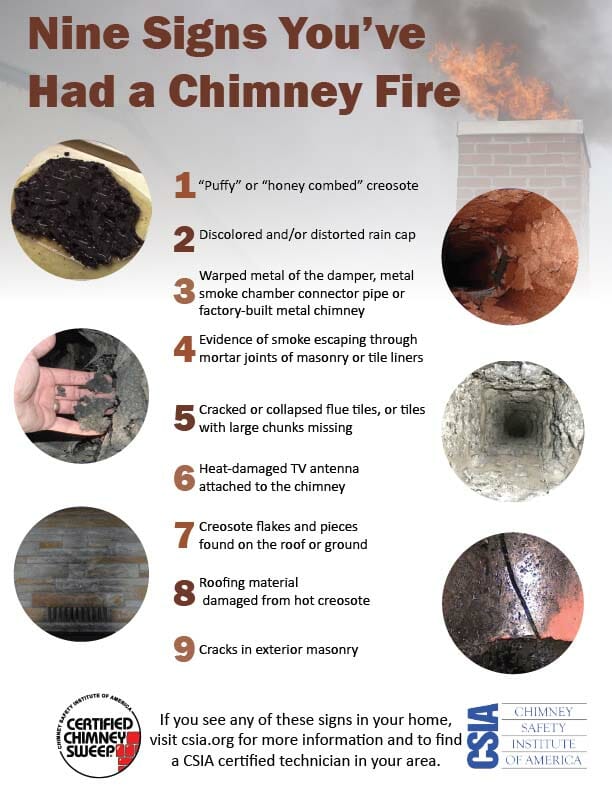
The Dangers of Chimney Fires

As we come into the colder months, we’d like to take a moment to talk about chimney fires and the dangers they pose. With the ever increasing cost of fuels to heat homes, wood seems to remain a viable alternative heat source. Heating with wood creates a greater potential to have a chimney fire than most fuels currently being used. This risk comes from the creosote that is produced when burning wood or coal. Some of the risks can be associated with burning green/unseasoned wood, not burning hot enough, having inadequate airflow, and burning improper fuels(carboard, plastics, etc.).
The NFPA recommends getting your chimney cleaned and inspected once a year by a qualified professional regardless of your chimney type. Although it may seem like just another task or added cost, chimney fires are dangerous because they can rapidly spread to other areas of the home, putting those within the home at risk of injury or death. Not only that, but they can cause a lot of damage to the chimney itself. The cost is minimal comparatively to the cost of a chimney, home, and can’t compare to the cost of life.

Above is some signs you’ve “had” a chimney fire in the past, but how can you tell if you’re actively having a chimney fire? Some signs that you actively have a chimney fire may include rumbling that sounds like a freight train or low-flying airplane, loud popping or cracking noises, dense smoke or flames shooting out of the chimney, and intense heat coming from the fireplace. You may also ask, why didn’t I notice that I had a chimney fire? Well that’s because most chimney fires have limited air and fuel, causing them to burn slowly. They are then discovered when the chimney is cleaned or inspected.
This is why we cannot stress the importance of yearly cleaning and inspections, burning only seasoned fire wood, and making sure you’re burning efficiently and properly. If you do believe you’re having an active chimney fire, do not add any more fuel to the fire, immediately call 911, and get yourself and your loved ones(this includes pets) out of the house. Stay safe and stay warm.